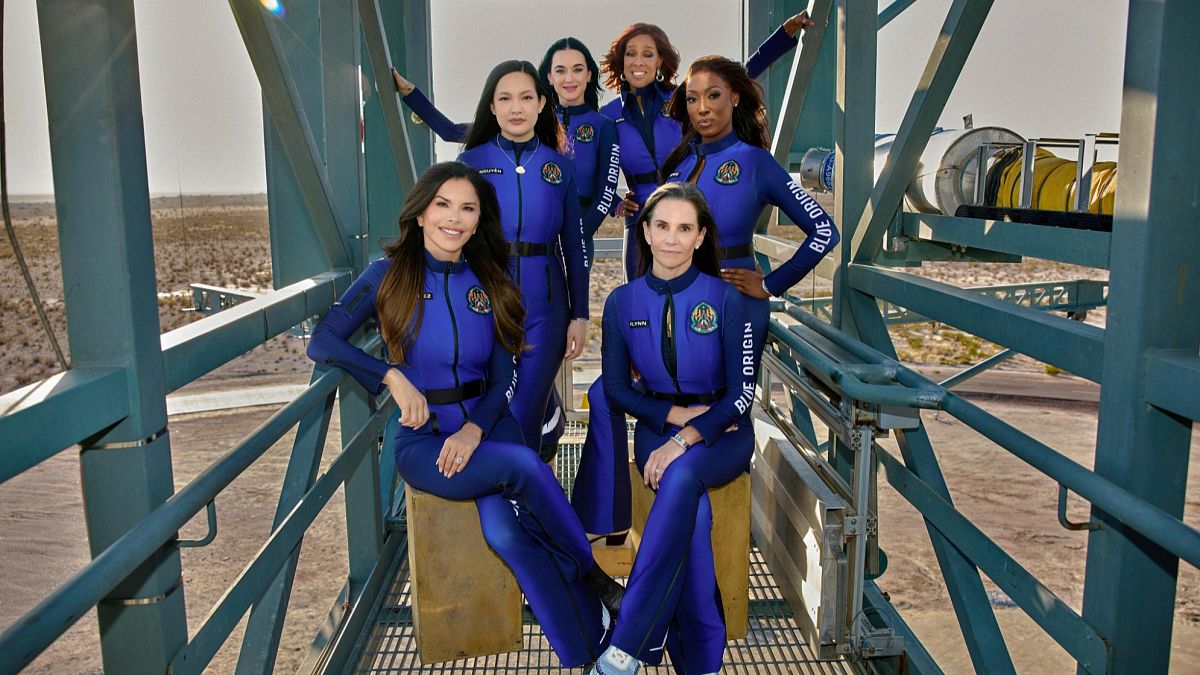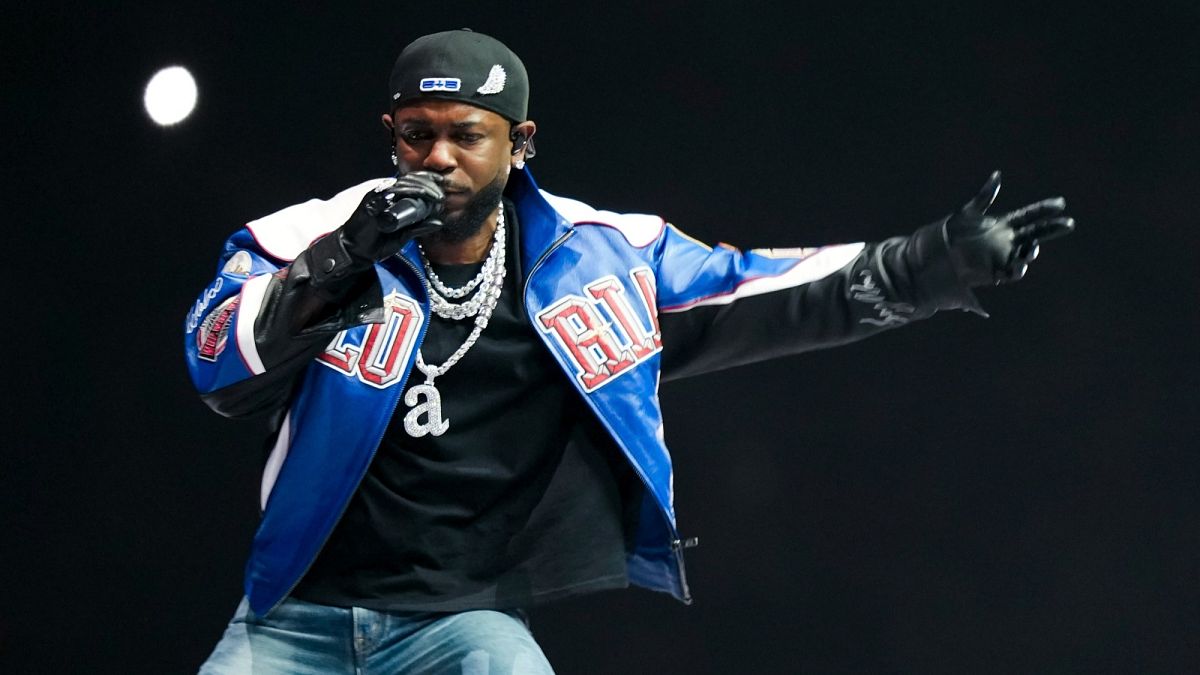You could call it the Glastonbury of the food world. Marking its 60th anniversary in Paris, the SIAL fair has played host to some 7,500 food exhibitors from 200 countries over the past week. It may be closed to the public, but this is where food trend and fashion are set.
From Italian squid to Hungarian foie gras, without forgetting vegetarian tuna, an endless array of tastes and scents line the 270,000 square metres of SIAL's (International Salon of Food) Parisian exhibition centre.
"The fair was created by France's Agriculture Minister in the 1960s, when the country was going through a big transformation in agriculture. There was an increase in yields, so the industry expanded and decided to sell its surpluses to companies from abroad", Nicolas Trentesaux, SIAL director tells Euronews Culture.
Today the trade exhibition is not only a key date in the world of food import-exports, but also a showcase of some of industry's most creative innovations. Although France was long viewed as the world leader in all things gourmet, at fairs like this it is clear that the balance has shifted.
French restaurants using Chinese caviar
For instance, if you are lucky enough to be served a dollop of caviar in one of the French capital's finest restaurants, you may not know that the sturgeon eggs you are eating probably come from a Chinese lake. Although the fine product once came from Europe and the United States, China is now the world’s biggest producer, ahead of Italy and France.
"The European market is very important for us, it represents 40% of our sales”, explains Han Lei, Vice-President of Kaluga Queen. As China's number one brand it supplied 21 of 23 Parisian Michelin starred restaurants with their caviar in 2017.
“It costs between €2,000 to €5,000 per kilo. Caviar is not that popular in China but we are trying to bring this culture there and now the market is growing. Roast duck topped with caviar is becoming more popular", he says with a smile.
Tuna and salmon... with no fish
Although for many eating caviar is not an everyday choice, most people know what the product looks like. However, when SIAL was created 60 years ago, many of the products available now would have been utterly unimaginable to the fair's founders.
This is the case for the French vegetarian fish brand 'OLALA Foods!', which produces vegetarian salmon and tuna. It plans on opening a factory in the fishing port of Boulogne-sur-Mer, in Northern France.
"When we arrived in the town we found fishermen to be very understanding of our project. They are the first ones to see that they go fishing and come back with 50% less fish than they had ten years ago. I think the fish industry is more understanding than the meat lobby, as there is not this sense that we are 'stealing jobs'", explains Marie-Astrid Gouin, Head of Sales at OLALA!.
Pea protein is a key ingredient in the brand's product range which has seven varieties of 'fish'. "We want to convince people to buy our products through getting them to taste them and think 'this is tasty!'", adds Gouin.
A 'beer' made for the sporting best
With the boom of alternative fish and meat products, there also comes the flood of alternative alcohols. Standing out in this competitive industry is no mean feat, but 'Goxoa', a beer brand created especially for athletes may have managed just that.
Founder Jonathan Dubois - a keen triathlete - was inspired by his passion for sports to create the product.
"The climax of my frustration came when I grabbed an alcohol-free beer after a long day at a training camp. The beer really wasn't tasty at all, I felt I wanted to have a drink to cool off and relax, but instead the beer tasted of chemicals and sugar", he tells Euronews Culture.
The drink - which won a gold medal at the European Beer Challenge - is made through a unique brewing process which naturally produces 0.3% alcohol, the same amount found in "fruit juice or a slightly ripe banana,’ asserts the triathlete.
Under French legislation, a drink containing up to 1.2% of alcohol can be labelled “alcohol-free”. But for Dubois it is not only about mimicking alcohol, as he also wants the drink to have distinct health benefits. "It contains 50% less calories than an alcoholic beer and ten times more electrolytes, as well as minerals and calories to ensure hydration."
Japan's hold on the European market
Japanese street food may be a hit with European diners, but it is Japanese fine dining which has taken the culinary world by storm.
"We are very pleased to see that the quality of Japanese restaurants across Europe is improving", says Norihiko Ishiguro, the Chairman and CEO of Japan's External Trade Organization.
In 2024, Japan became the second country in the world to have the most Michelin starred restaurants, second to France. Although French and Japanese cuisine may be wildly different, they are both highly technical and require quality ingredients.
"I think consumers in both countries appreciate authentic products," Asami Hama, whose family has run a soy sauce brewery for over 130 years, tells Euronews Culture. She has stuck to her family's recipe which was created in 1897 and entails brewing the additive-free soy sauce in cedar barrels.
For Hama, sauces lie at the heart of quality cooking, with three-star Michelin chefs in Japan already using her sauce. However, she would like to go further "my dream is to sell to three-star Michelin restaurants here in Europe and France", she says with a smile, hoping that her trip to SIAL will be worthwhile.
With the immense popularity of Asian restaurants and fusion food, European buyers are also on the hunt for the next hit hot sauces and sensation-sparking drinks.
"I am here to scout out new items which aren't yet on French shelves, I am interested in new Japanese saké for instance", Aymeric Lazar, head of wine for luxury Parisian grocery shop L'Epic says, before taking a swig of the drink.
So keep your eyes peeled and your taste buds open for the next new wave of trends coming to your supermarket or restaurant table.

 5 months ago
58
5 months ago
58






 We deliver critical software at unparalleled value and speed to help your business thrive
We deliver critical software at unparalleled value and speed to help your business thrive






 English (US) ·
English (US) ·